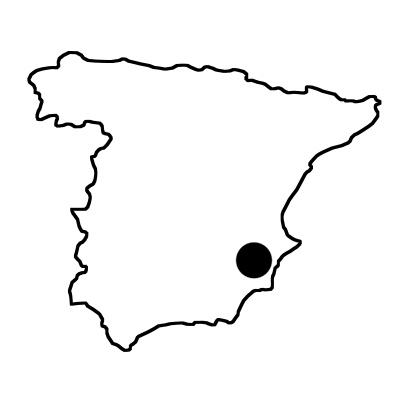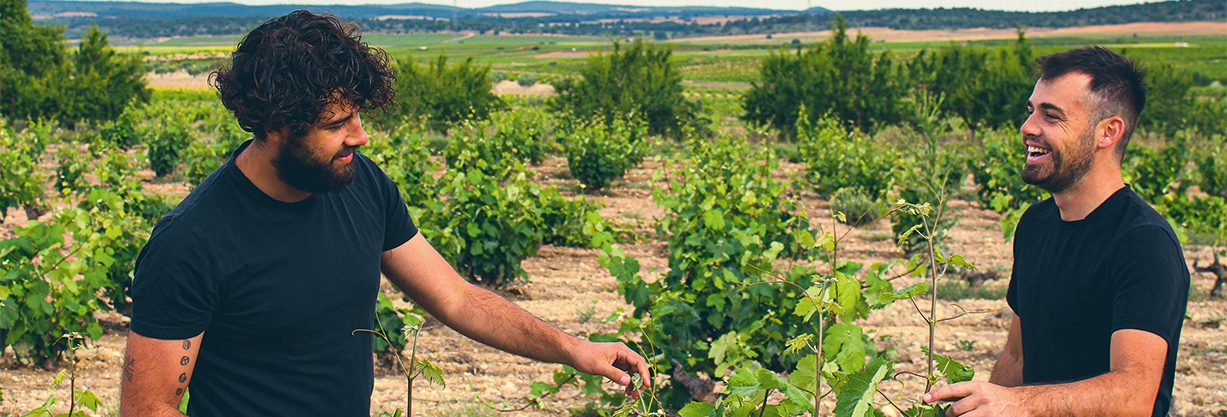



Bodega Cerrón is not the new kid on the block but rather the talk of every Spanish town. The family’s roots run deep in the charming town of Fuente-Álamo in the northern part of Jumilla. The family has been cultivating this land since 1895, and as the fourth generation of the Cerdán family, sibling Carlos, Juanjo and Lucía have inherited a rich legacy where quality remains the cornerstone.
To better understand the wines from Jumilla, there are nuances of unique conditions contributing to the exceptional wines made by Cerrón that you need to know about.
Firstly.
Jumilla stands out as a protected designation of origin, comparable to any other notable Spanish region. One common misconception about Jumilla is that it is solely warm. In reality, it is a vast area situated on the Mediterranean plateau, with hills ranging from 1000 to 1350 meters in elevation. This altitude moderates the heat significantly and creates a substantial temperature difference between day and night. Such thermal amplitude extends the ripening period and helps preserve the natural freshness of the grapes—a climate characteristic essential for maintaining the balance, energy, and quality of the family’s fruit, thriving at 800(!) to 1000(!) meters above sea level.
Secondly.
Geologically, Jumilla is diverse due to the tectonic collision between the Prebetic Mountain Range and the Iberian System. This geological activity has exposed strata dating back 150-240 million years, to a time when the Iberian Peninsula was partially submerged by the Tethys Sea. Cerrón’s vineyards benefit from this prime location on soils rich in diverse limestone formed by the ancient sea, supported by clay and chalk.
Their 40 hectares tell a generational story with old, ungrafted (‘pie franco’) vines, planted from 1911 to 1967. Monastrell is in focus alongside Garnacha, Moravia Agria, and Forcallat. They are grafting the international varieties that their parents planted onto native ones. For whites, it’s mostly Airen represented. Sustainable and responsible farming has always been practiced here, and in 1989, the winery became the first in Spain to be certified organic (since 2021 biodynamic by Demeter). This means no fertilizers, additives, or synthetic chemicals are used in the vineyards.
Harvesting is done entirely by hand, and only native yeast is used in the winemaking process. Grapes are handled minimally in small basket lots, with just 30 minutes from harvest to cellar. They rely on spontaneous fermentations, light extractions, and avoid using sulfites at any stage. The use of neutral wood and cement helps preserve the distinctive character of their terroir at every stage of the process, from vineyard to glass.
It is important to know that there are two lines of wines at the domaine – Bodega Cerrón and Stratum. As opposites, the Cerrón bottlings represent their signature wines, producing the wines that the family has always made, while the Stratum range is the personal project of the siblings, bringing singular high-end cuvées from single vineyards to light.
Carlos, Juanjo and Lucía represent the new high-force generation of winemakers. This ancient bodega masterfully blends rooted tradition with innovation, contributing vibrant wine to the international wine scene. With their meticulous approach, the Cerdán trio ensures the continuation of their legacy while breaking new ground for phenomenal wines for future generations.